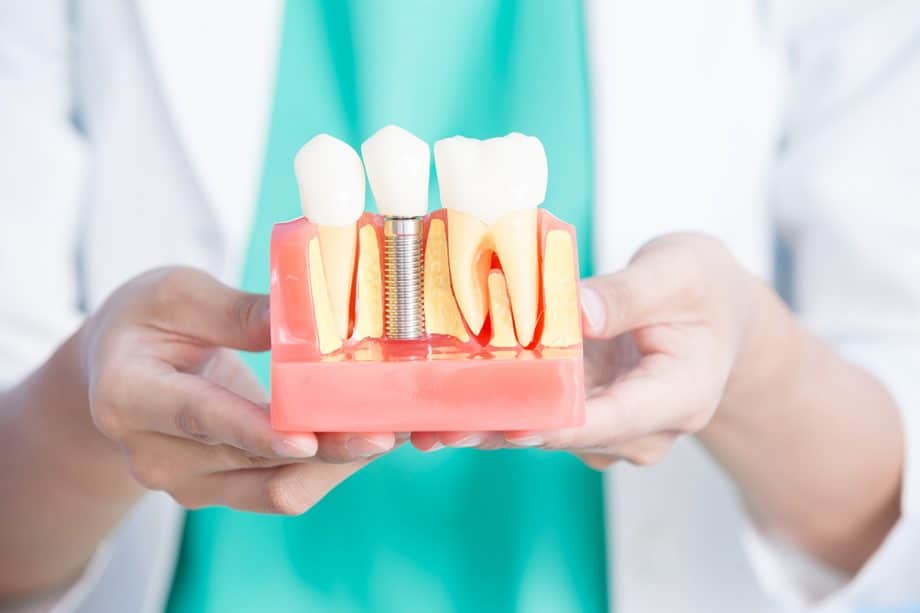Dental implants have been around for a while, but find themselves growing in popularity these days. That’s because they are the most natural-appearing tooth alternative on the market and they function just like the real thing. What more could you ask for?
But, what are dental implants? And, how do they work? Let’s talk about it.
What are Dental Implants?
Dental implants are a tooth alternative that replaces one or more missing teeth. The procedure begins with a titanium post (like an artificial root) being surgically implanted into the jaw bone. Over the next few months, it will fuse with the bone and become a sturdy anchor for your new tooth. An abutment is then added to the root in order to hold the crown, your new replacement tooth.
Your dentist will review your bone density and overall level of oral health to determine whether you are a good candidate for dental implants. You may or may not need to undergo bone grafting before the dental implant procedure can commence.
Although the entire process can take several months, you will be left with a beautiful, fully functional replacement tooth.
Types of Dental Implants
Dental implants work perfectly for replacing one tooth, but their capabilities do not stop there. There are other ways in which they are used to help those missing multiple teeth.
Dental implant bridges are used effectively when multiple teeth are missing in a row. Dental implants are used on either end to secure a bridge in place. In other words, the bridge is anchored by the implants and not the surrounding teeth. Depending on how many teeth are missing, more than two implants may be required.
Dental implant dentures are a great alternative to traditional dentures. They are much more comfortable and functional, too. There are two kinds to choose from. One is implant-retained dentures that secure dentures using a ball-and-snap system and the other is implant-supported dentures that anchor to a bar attached to the implants.
The Longevity Dental Implants
As we discussed, you have options when it comes to replacing a missing tooth - or multiple missing teeth. Many people learn of their options and are often deterred by the cost of dental implants. True, they are usually the most expensive option - but that is because they are designed to last a lifetime. Other alternatives are not. For example, the American Dental Association recommends that traditional dentures be replaced every 5 - 7 years. That cost (and inconvenience) can greatly add up over the years.
Dental implants are fused into the bone and will last throughout your life. The crown portion will last roughly 10-15 years before it needs to be replaced. Sometimes, with great care, they can even last longer.
Replacing Missing Teeth
Other than the aesthetics, it may not seem like too big of a deal to be missing teeth. However, whether you are missing one tooth or multiple, you need to fill that gap. Teeth keep themselves in line. When one is missing, teeth can slowly begin to shift. This impacts your bite - and can lead to other problems, such as gum disease, tooth decay, and TMJ disorder. Leave it alone and you may find that your face may start to change.
By replacing a missing tooth with an alternative tooth, you are able to keep the teeth in line as they are supposed to be and avoid all these unnecessary issues. Dental implants are one of the best solutions.
Transform Your Smile with Dental Implants
If you are interested in learning more about dental implants or would like to see if you are a candidate, Dr. R.R. Williams, DDS, and the entire team are here for you.
Contact us today at 817-281-4801. Or, request an appointment online.

